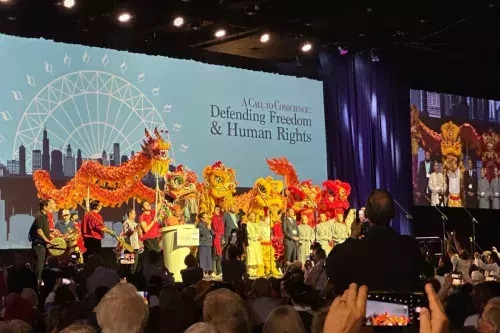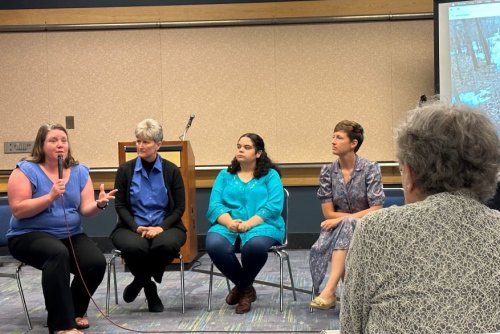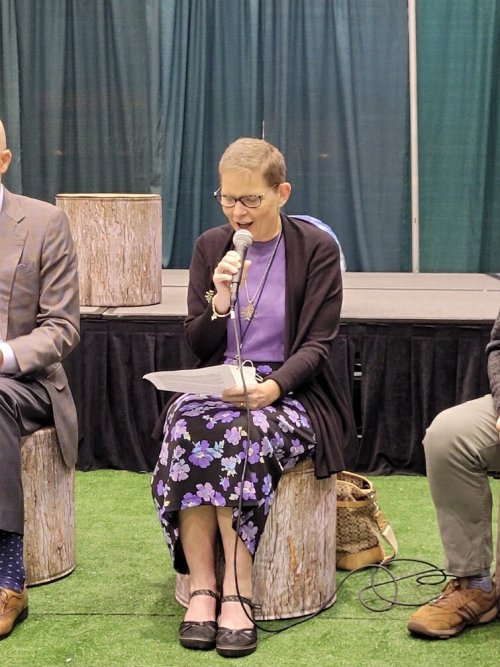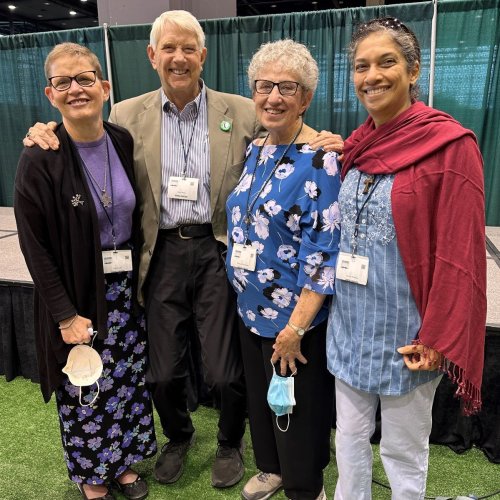FSPA’s voice was heard at “A Call to Conscience: Defending Freedom & Human Rights,” the 2023 Parliament of the World’s Religions, Aug. 14 to 18, in Chicago, Illinois.
The Parliament of the World’s Religions is the world’s largest, most diverse and inclusive interfaith convening of people of faith, spirituality and goodwill — civic, spiritual and grassroots changemakers. Its origins are rooted in the 1893 World’s Columbian Exposition in Chicago, where the historic first convening of the World Parliament of Religions created a global platform for engagement of religions of the east and west and was thereafter recognized as the birthplace of the modern interfaith movement.
The convening, attended by thousands of people from around the world, offered content of critical issues and constituencies that included climate action, global ethics and peace as well as justice for Indigenous Peoples, next generations and women’s dignity.
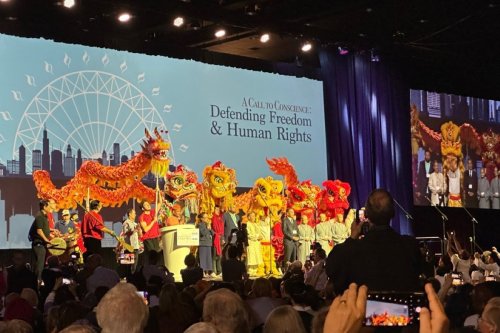
Opening ceremony (photo by Franciscan Sister of Perpetual Adoration Julia Walsh)
Franciscan Sister of Perpetual Adoration Julia Walsh facilitated the panel discussion, “Creating Inclusive, Sacred Spaces.” She guided the conversation in which the three panelists shared their experiences and wisdom about the establishment and coordination of unique inclusive interfaith spaces, exploring how their work connects to peacemaking and human rights.
“It’s a ministry of beginning and becoming, and you have to be open to the great mystery,” shared Sister Julia.
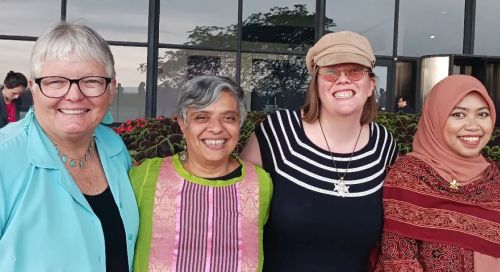
Tessa Bielecki, Deepa Patel, Sister Julia Walsh and Ustazah Liyana R. Asmara (photo by David Denny)
Beth Piggush, FSPA partner in mission and director of integral ecology, participated in the panel discussion “Climate, Racism and … Property?: The Call to Climate Justice for Religious Property Owners.” The discussion was facilitated by Brittany Koteles, director of the Nuns & Nones Land Justice Project — an effort to build a community across religious communities to reimagine the property planning process, supporting options for protection and regeneration of the land while expanding equity, tenure and access to those who have been dispossessed of land — especially Black and Indigenous stewards and other people of color. Said Beth, land justice is about “truth and reconciliation. These are not buzzwords, and it’s a painful process, but we can build relationships and stewardship for the betterment of all creation.
“If anyone is going to step up, it’s going to be people of faith.”
FSPA Integral Ecology Director Beth Piggush shares FSPA's commitment to land justice with co-panelists Callie Walker, Tela Troge and facilitator Brittany Koteles.
And Franciscan Sister of Perpetual Adoration president Sue Ernster was there to talk about “Faith-based Divestment From Fossil Fuels” as a member of a prestigious panel of faith-based leaders that included Karenna Gore, founder and executive director of the Center for Earth Ethics and professor of practice of earth ethics at Union Theological Seminary in New York.
Franciscan Sister of Perpetual Adoration Sue Ernster shares FSPA's commitment to faith-based divesting in fossil fuels, responsible impact investing.
A major cause of the climate emergency is the extraction and burning of fossil fuels: coal, gas and oil. To avoid catastrophic effects of global warming, a zero-carbon economy must be achieved by 2050, but emissions of greenhouse gases are still rising. “Divestment” means that the finances of an institution or individual do not support fossil fuel extraction, directly or indirectly, and is now a global movement totaling trillions of dollars. Faith-based institutions are a significant part of this action, selling assets related to the fossil fuel industry and also committing not to invest in them in the future. Divestment sends a message both to the industry and society at large that moving to a carbon-free economy cannot be delayed, and the teachings of our faith traditions require us to take action.
“We have signed on to the seven-year Laudato Si’ action platform, utilizing economics as one of the seven goals, " shared Sister Sue. "As well as divesting from fossil fuels, we are keeping in line with our Franciscan values of working with those most affected by climate change and our current system by increasing our impact investments.
"FSPA investments are made in an integrative manner … in the sense of alignment with our values, how we desire to shift the economic system so all, including Mother Earth, are better than before.”
Franciscan Sister of Perpetual Adoration Sue Ernster, David Hales and Franciscan Sisters of Perpetual Adoration Georgia Christensen and Corrina Thomas
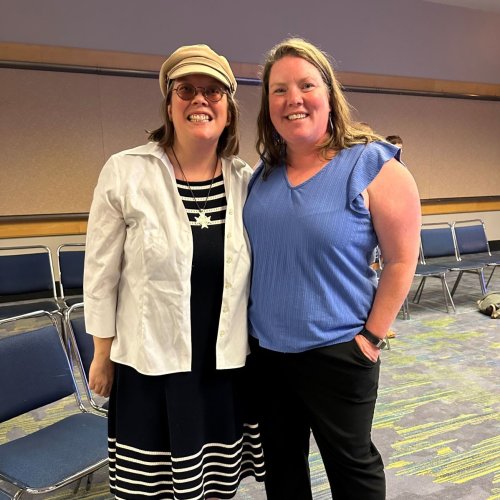
Franciscan Sister of Perpetual Adoration Julia Walsh and FSPA Integral Ecology Director Beth Piggush

